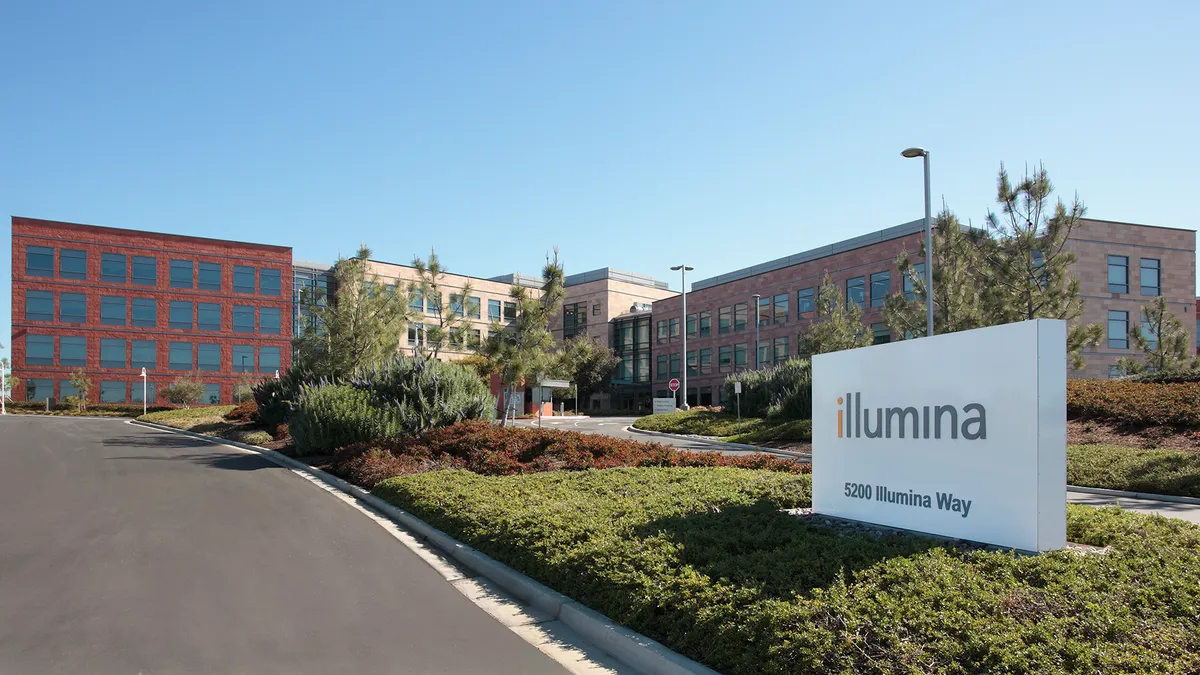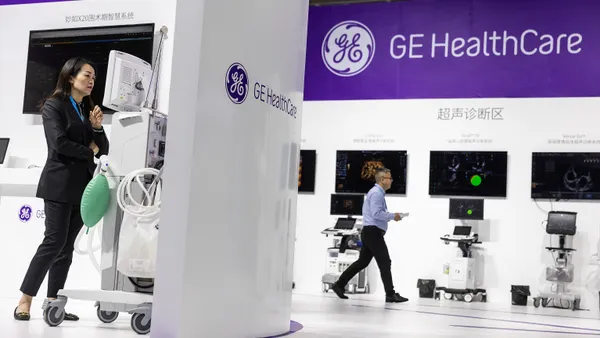Dive Brief:
- Illumina and Tempus AI have partnered to drive clinical adoption of next-generation sequencing tests beyond oncology, the companies said Tuesday.
- The collaborators will combine Illumina’s artificial intelligence technologies and Tempus’ data to train genomic algorithms and show the clinical value of sequencing.
- Illumina and Tempus aim to standardize the use of comprehensive genomic profiling and other molecular testing across all major categories of disease to enable targeted treatment.
Dive Insight:
Sequencing tests are already enabling physicians to find cancer patients who are more likely to respond to targeted treatments. However, the use of genomic profiling and other molecular tests to match the right drug to the right patient, an approach called precision medicine, is largely limited to oncology. In most therapeutic areas, the patient’s clinical presentation and lab results inform the choice of drug.
Precision medicine could allow more patients to receive effective therapies first time, reducing the harm caused by spending time on medicines that do not work but may cause side effects in the process. There is interest in applying the model to cardiology, neurology, rheumatology and other therapeutic areas.
Illumina, a leader in genomic sequencing, and Tempus, a company built on large libraries of multimodal data, have partnered to support tests that could bring precision medicine to all therapeutic areas. The companies have a history of working together to develop diagnostic tools and assays.
Tempus signaled its intent to expand beyond cancer when it struck a deal to buy genetic testing company Ambry Genetics for $600 million in November. The company said the takeover would allow it to expand into areas including pediatrics, rare disease, immunology, women’s reproductive health and cardiology.
Tempus CEO Eric Lefkofsky outlined the expansion opportunity at a Morgan Stanley event last month. The company is currently focused on oncology, which Lefkofsky said accounts for $1 trillion of roughly $5 trillion in total U.S. healthcare spending. Precision medicine tools “are really only at some small amount of maturity in oncology in the U.S.,” Lefkofsky said, creating opportunities in cancer and beyond.
“This is the very tip of the very tip of the iceberg. Likely what happens is that precision medicine ... becomes pervasive in the U.S. in oncology and really is routing every patient to the optimal therapeutic,” Lefkofsky said. “Then people will be like, ‘Oh, I want that in cardiology, I want that in immunology, I want that in rare disorders,’ and you'll start to see that proliferate.”
Lefkofsky said the move to precision medicine has taken longer than most people expected when the human genome was first sequenced, “because the system is, like, literally ridiculously broken.” A change that should take two years takes 14, Lefkofsky added, because “the system is designed for nothing to ever happen.”
The partnership with Illumina is intended to speed up the process by generating insights that show the clinical value of sequencing. Illumina and Tempus plan to use the insights to build evidence packages that standardize comprehensive genomic profiling and other molecular testing across all major diseases.










